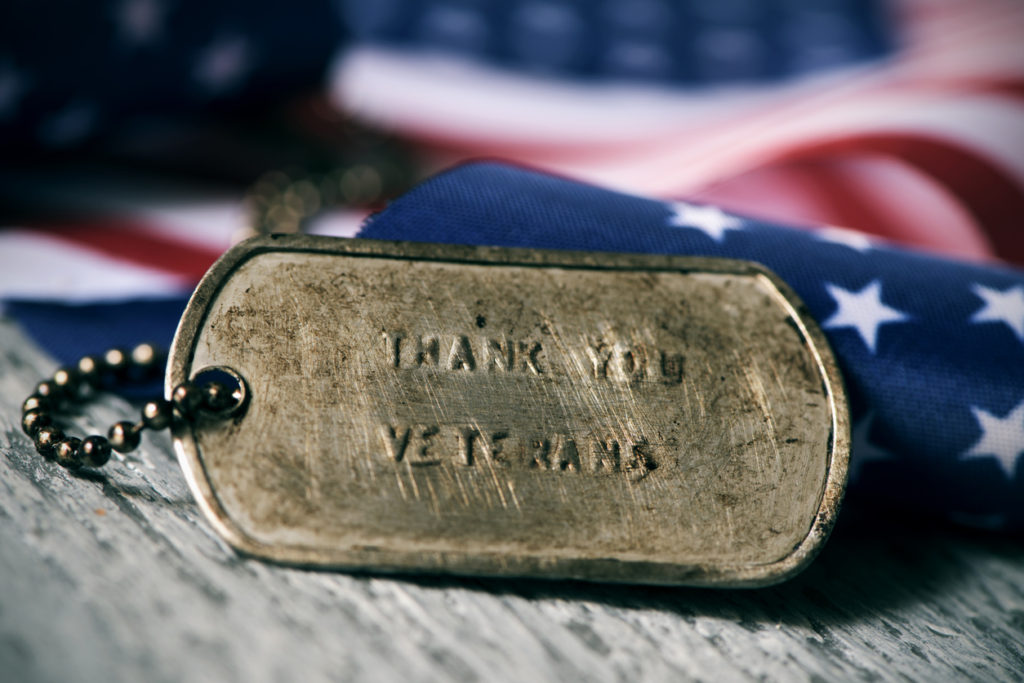Welcome back! This blog provides financial resources and information for people living with cancer.
“Veterans know better than anyone else the price of freedom, for they’ve suffered the scars of war. We can offer them no better tribute than to protect what they have won for us.”
– President Ronald Reagan, 1983.
In respect of the upcoming holiday, I would like to focus on Veterans Benefits, specifically as they relate to a cancer diagnosis. The U.S. Department of Veterans Affairs (VA) offers many benefits for service members, Veterans, spouses, and dependents. Information for each benefit can be found at: https://www.benefits.va.gov/atoz/
Despite the number of benefits available, I find most eligible patients and family members have a limited knowledge of Veterans benefits available to them. Let’s take a closer look at VA health benefits:
General information on Veterans Administration (VA) health benefits and a ton of information on medical package benefits are available at: https://www.va.gov/health-care/about-va-health-benefits/
To use VA health care, you must be enrolled and have a VA health provider. Your current health insurance coverage does not affect the VA health care benefits you can get. However, your income determines if you will be responsible for co-pays. Enrollment applications can be submitted by phone (1-877-222-8387), mail, in person at a VA medical center or clinic, or online at: https://www.va.gov/health-care/apply/application/introduction
My experience with a new VA health benefit enrollment application is that the process takes time and effort. Once an application is submitted, follow up is usually required. In my region (Mid-Atlantic), making an in-person appointment to complete and submit an enrollment application at a VA medical clinic has been the method that is most time efficient.
You can find assistance at your state VA offices: https://www.va.gov/statedva.htm Many counties also offer VA assistance services.
Veterans living with cancer who have been exposed to Agent Orange or radiation may be placed in a higher priority group. To determine your eligibility, go to: https://www.va.gov/health-care/eligibility/
Can you receive cancer treatment outside of a VA medical center? Yes, within limitations: Non-VA covered services include medical care provided to eligible Veterans when VA facilities are not locally available or accessible to the patient, or when the required specialty, technology, or physicians are not available. Typically, non-VA care requires pre-authorization, except for emergencies. Medications prescribed by a non-VA provider will need to be approved by your VA provider to be covered by this benefit. Information on Community Care can be found at: https://www.va.gov/COMMUNITYCARE/programs/veterans/General_Care.asp
Many non-VA cancer treatment programs offer services to streamline pre-authorization from VA benefits. Ask your cancer treatment provider if these services are available at your program.
Should you drop your Medicare A or B coverage when approved for VA benefits? No.
Are VA health benefits a Medigap plan? No.
Both Medicare and VA health benefits will be your primary insurance depending on the location of care that you receive. One does not replace the other. If you receive cancer treatment services at a VA Medical Center or clinic, VA benefits are primary. If you go to a non-VA doctor or hospital, Medicare is primary. Typically, VA benefits do not cover non-VA medical services unless they are pre-authorized. VA benefits may not cover all types of cancer treatment services.
If you are struggling with paying your cancer treatment bills, investigate VA health benefits. Uninsured or underinsured Veterans will save the most money using these benefits
Can I trust the quality of cancer treatment services that I receive at a VA facility? Trust in your cancer treatment team is essential, and it’s hard to find a quality rating for cancer treatment at VA facilities. Ask your health care provider what their experience has been with your local VA facility. Additionally, a second opinion is always a good idea. If your VA provider and non-VA provider offer you the same cancer treatment options, you can choose which is best for you. Often cancer treatment plans are standard and approved by the National Comprehensive Cancer Network (NCCN). Before you meet with each provider, review the “NCCN guidelines for patients” specific to your diagnosis at https://www.nccn.org/patients/guidelines/cancers.aspx
Additional resources for Veterans can be found in the National Resource Directory: https://nrd.gov/
I hope this information is helpful. If you would like to continue this conversation, please click on the Subscribe button at the top of the Blog page. I would love to hear your comments as well as resources that have worked for you. Please share this information with your family and friends.
Keeping you in my prayers,
Jackie
For introductory information and to understand the mission of this blog, please see the Introduction


